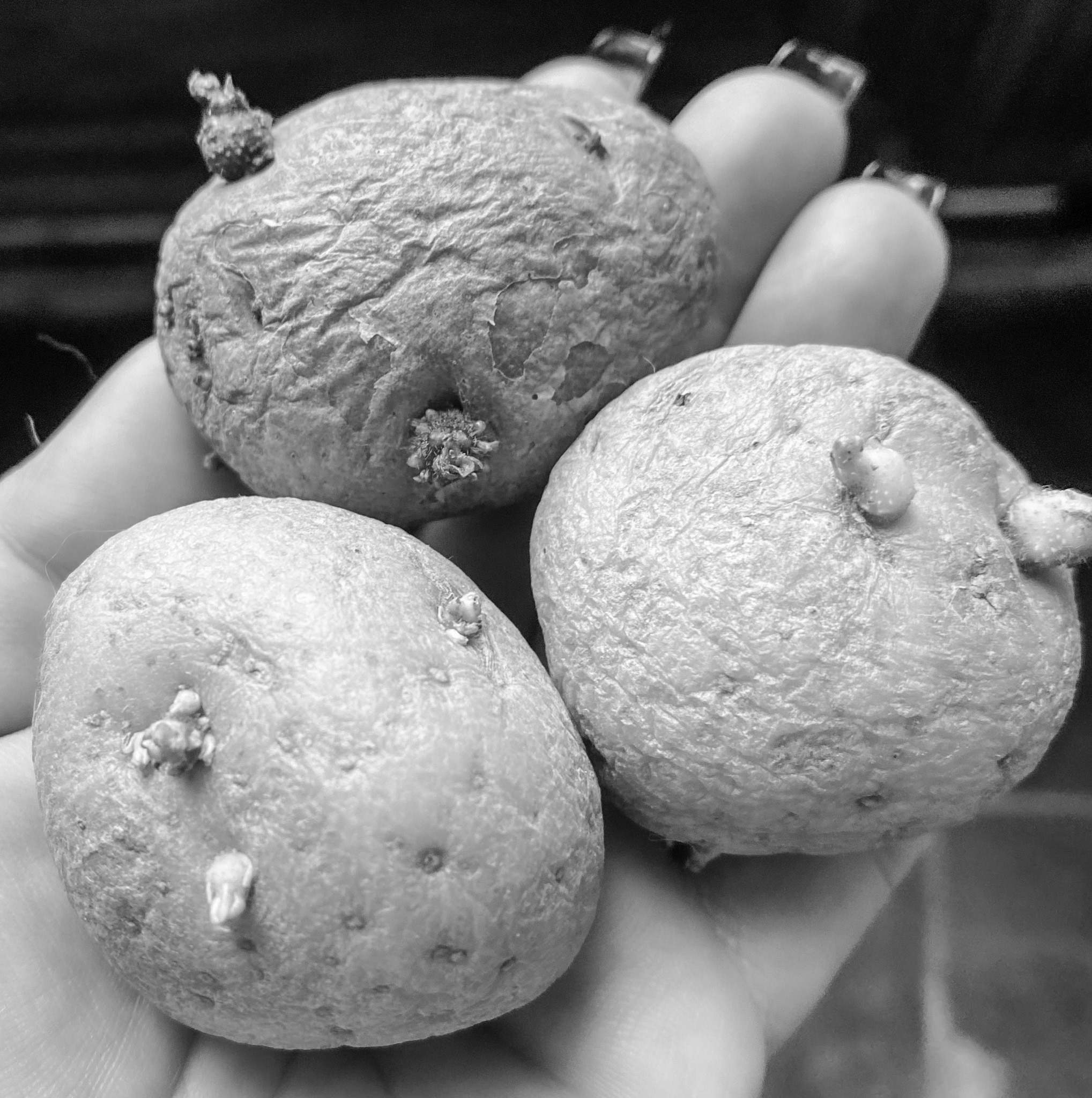PLOW & HOSE ORGANIC GARDENING IN CENTRAL TEXAS | Julie Rydell
Valentine’s Day is the traditional association for planting potatoes in Central Texas and early February is the perfect time for sourcing and preparing seed potatoes.
Seed potatoes are tubers used for growing a new crop. They are genetically identical to the parent plant and often leftover from the previous harvest. We typically grow from tubers instead of seeds from pollinated potato flowers because the plants develop much faster.
Seed potatoes can be purchased locally from feed stores, independent nurseries and most chain stores with garden centers. Potatoes from the grocery store can also be used in the garden, but could be treated with growth inhibitors which prevent sprouting.
You can use organic potatoes from the store, but you might not know the variety. For the best success, use seed potatoes intended for home gardens. Recommended varieties for Central Texas are Yukon Gold, White Kennebec, Red Lasoda and Red Pontiac.
Potatoes are members of the nightshade family and botanically related to tomatoes. Just like their plant cousins, potatoes grow as determinate or indeterminate types.
Indeterminate potatoes produce their crop along the main growing stem, just like tomatoes, except they produce tubers in the soil. As the main stem grows, the new growth should be covered occasionally to maximize the harvest. Indeterminate type plants grow quite long and vine-like. These potatoes stems can get up to seven feet long.
Indeterminate potatoes require more space and time to mature but can yield more potatoes.
Determinate potatoes grow to a certain height.
They produce shorter plants that only grow three feet tall. They produce a reliable crop of tubers without needing their stems to be covered with soil. Since they are smaller and fast-growing plants, they tend to have fewer days to harvest.
Knowing the name and type of potato is beneficial for a successful harvest.
The previously mentioned recommendations are determinate varieties.
Large seed potatoes can be cut and divided in to one to two-inch pieces that have growth nodes.
Cut pieces must develop a callus before planting to reduce rot. Cut pieces also have been exposed to pathogens, which might impact your harvest. If possible, choose the smallest seed potatoes and plant whole.
Pre-sprouting your seed potatoes will increase your success. Place your seed potatoes in a warm location and allow them to develop “eyes” and sprout. Pre-spouting isn’t necessary as they will sprout after planting, but it will help accelerate growth.
Potatoes require loose, well-draining soil. Our heavy, black clay soil must be amended well with lots of compost if you are planning to plant directly in the ground. Compost will enrich the soil with nutrients while keeping the soil loose and well-draining.
Alternatively, you can plant potatoes in raised beds, potato boxes, grow bags or containers.
Potatoes develop runners beneath the soil.
These are called stolons and form from the main stems. The tubers form off the stolons rather than the roots. The above ground portions of the stems have the potential to produce stolon runners, which is why we continuously cover the stems as they grow. Both determinate and indeterminate potatoes have this ability, but determinate varieties stop growing when they are about three feet tall.
To take advantage of this unique ability, partially fill your container with soil and plant your seed potatoes. When they have grown six inches, cover the stems with soil up to the top set of leaves.
Repeat until the plant reaches three feet tall, fertilizing ever few weeks.
Potatoes are heavy feeders, but select an organic fertilizer with more phosphorous and potassium than nitrogen. Depending on the variety, potatoes need 80 to 120 days to grow before harvesting.
With 25 years of backyard gardening experience, Julie is a plant and nature enthusiast. She lives in Taylor and hosts the “Plow & Hose Organic Gardening in Central Texas” podcast.

Pre-sprouting seed potatoes will give your potato crop a growth jumpstart. Planting seed potatoes around Valentine's Day.








